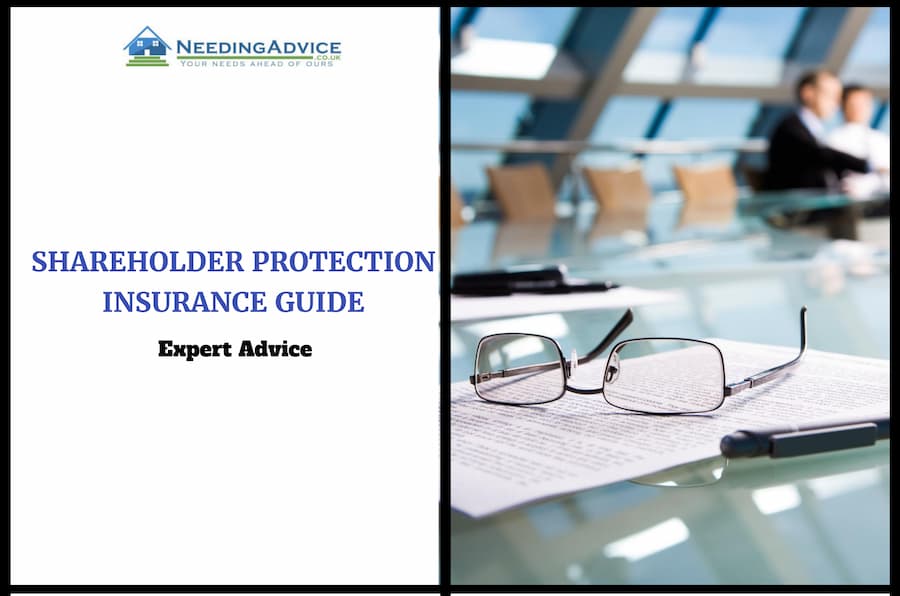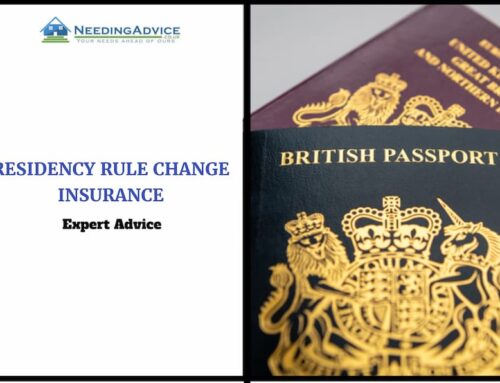This resource explains how shareholder protection works for business owners, how it supports succession planning, and how it aligns with wider financial decisions such as mortgage planning. It also explores agreements, trust arrangements, tax considerations and the practical steps shareholders can take to safeguard their business.
Shareholder protection gives remaining shareholders a clear, legally supported way to buy an outgoing shareholder’s stake if they die or suffer a serious or terminal illness. Using structured shareholder protection agreements, life insurance or Critical Illness Cover, businesses can maintain stability, protect ownership, and provide a cash lump sum at fair market value to the deceased’s family.
Understanding Shareholder Protection
Shareholder protection is a form of Business Protection designed to ensure smooth share transfer when a shareholding director dies, suffers a serious illness or meets a condition covered under Critical Illness or terminal illnesses. Policies may be set up on a life of another basis, through own life plans, or via company-owned plans written into business trusts.
When no protection is arranged, the outgoing shareholder’s estate inherits the shares, which can create uncertainty. Shareholder protection insurance prevents external parties from gaining control and ensures surviving partners can buy back the shares at a pre-agreed valuation method.
Common structures include:
- Trust arrangements
- Share and Partnership Protection
- Life of another policy setups
- Life policy with Serious Illness Cover
- Renewable Term Life Cover or Fixed Term options
- Waiver of Premium features
- Guaranteed Insurability Options
- Children’s cover for wider family protection
Why Business Owners Need Shareholder Protection
When a shareholding director dies, retires or becomes seriously ill, their shares automatically become part of their estate. Without a share transfer mechanism such as a cross option agreement, single-option agreement, or automatic accrual method, the business may have to negotiate with family members with no interest in business management.
Key benefits include:
- Maintaining control and stability
- Ensuring fair market value is paid to the estate
- Preventing undesired third-party ownership
- Delivering a cash lump sum without disrupting working capital
- Supporting succession planning and long-term business continuity
- Avoiding uncertainty under model articles or bespoke articles of association
These benefits apply to limited companies, LLPs (limited liability partnerships), and partnerships.
How Shareholder Protection Works
A life policy or Critical Illness protection plan is taken out to create funds for buying shares from an outgoing shareholder. The structure might follow:
- Life of another plans
- Own life plans written into trust
- Company buyback arrangements under Companies Act 2006
- Double-option agreement (put option + call option)
- Buy and sell agreement
- Single option agreement
When triggered, the policy pays out a lump sum that enables remaining shareholders to complete the buy back without financial strain.
This process is central to succession planning and avoids forced sales, delays, or valuation disputes.
Calculating Cover Levels
The business valuation calculator or an agreed valuation method is used to determine how much cover each shareholder requires. Factors include:
- The shareholder’s percentage ownership
- Net assets and profitability
- Agreed fair market value
- Future growth expectations
- Cashflow planning and premium costs
Because business valuations change over time, cover levels and trust documentation must be reviewed regularly.
Shareholder Protection Agreements
Your key agreement types include:
Double Option (Cross Option Agreement)
One of the most flexible shareholder protection agreements.
It gives:
- The estate a put option (to force remaining shareholders to buy)
- The remaining shareholders a call option (to buy the shares)
Both sides must commit if either party exercises their option.
Buy and Sell Agreement
Binding on both parties. Shares must be bought and sold automatically at the agreed trigger event.
Single Option Agreement
Often used for Critical Illness scenarios where only the shareholder has the right to initiate the sale.
Automatic Accrual Method
Usually used in partnerships: shares automatically pass to remaining partners without a sale.
Tax Implications of Shareholder Protection
Key tax considerations include:
- Inheritance tax and business property relief
- Trust arrangements to avoid pre-owned asset tax charge
- Avoiding issues with gift with reservation of benefit
- Corporation tax treatment of premiums for company-owned plans
- Capital gains tax implications on share buyback
- Ensuring compliance with Companies Act 2006
- P11D benefit considerations for certain policy structures
Tax treatment depends on whether the plan is company-owned, trust-based or “life of another.”
Professional tax and legal advice is essential.
Company Share Buyback
A company buyback (share buyback) ensures the company itself purchases the outgoing shareholder’s shares. This can provide:
- Enhanced control
- Clear governance
- Prevention of external interference
- Compliance with legal requirements
It is often used alongside business protection plans and succession plan documents.
Mortgage Fundamentals
Shareholder protection is often reviewed alongside mortgage applications, especially for directors balancing personal finances with business commitments.
Affordability Checks
Lenders review income stability, outgoings and commitments.
Credit Profile Expectations
Repayment history, utilisation ratios and public records affect eligibility.
Income Assessment
Lenders may assess salaries, dividends or profit share for business owners.
Stress Testing
Ensures repayments remain manageable if interest rates rise.
Deposit Rules
Higher deposits often lead to more competitive rates.
Lending Criteria
Each lender has rules based on employment, credit, property type and risk.
Types of Mortgage Products
Fixed Term mortgages, tracker rates, variable rates, interest-only and buy to let.
Eligibility Factors
- Shareholding structure
- Shareholder agreement type
- Business valuation
- Tax position
- Trust arrangements
- Level of required cover
- Articles of association compliance
- Succession plan requirements
Required Documents
- Share register
- Business valuation documents
- Articles of association
- Agreement type (cross option, buy and sell, or accrual)
- Trust deedsLegal documents that prove ownership of a property.
- Director details
- Business protection plans
Pros & Cons
Pros
- Stability for remaining shareholders
- Smooth share transfer
- Cash lump sum for the estate
- Supports inheritance tax planning
- Strong succession planning
- Helps avoid boardroom disputes
Cons
- Premium costs increase with age
- Requires legal and tax advice
- Must be reviewed regularly
- Complex if multiple shareholders are involved
Common Challenges
- Valuation disagreements
- Incorrect trust setup
- Outdated shareholder agreements
- Failing to align structure with Companies Act 2006
- Complications in limited liability partnerships
Practical Tips
- Review valuations annually
- Align business protection with mortgage planning
- Keep agreements updated when shareholders change
- Seek advice from insurance advisers familiar with business life insurance
Simple Comparison Table
Feature
Fixed-Rate Mortgage
Tracker-Rate Mortgage
Rate Movement
Stable for a fixed term
Moves with base rateThe interest rate set by the Bank of England, affects the in...
Payment Stability
Predictable payments
May rise or fall
Why Use a Mortgage Adviser?
Whole-of-market advisers compare lenders, assess eligibility, support applications and help business owners integrate protection planning and mortgages into a single, coherent financial strategy.
FAQs
What is shareholder protection insurance?
An insurance-backed agreement enabling remaining shareholders to buy the stake of an outgoing shareholder if they die or become critically ill.
How does a cross option agreement work?
It provides both the estate (put option) and remaining shareholders (call option) with rights to buy or sell shares at a fair market value.
Does shareholder protection help with succession planning?
Yes — it ensures structured share transfer, tax efficiency and long-term stability.
Who typically pays the premiums?
Premiums may be paid by the business or individuals depending on the agreement and tax strategy.
How-To Section
How to Seek Mortgage Advice
- Define goals
- Gather income documents
- Contact an adviser
- Review mortgage products
How to Apply Through an Adviser
- Fact-find
- Affordability assessment
- Agreement in Principle
- Submit application
- Underwriting
- Offer
What Documents to Prepare
- ID
- Payslips or accounts
- Bank statementsA record of a borrower's financial transactions often requir...
- Credit file






Leave A Comment